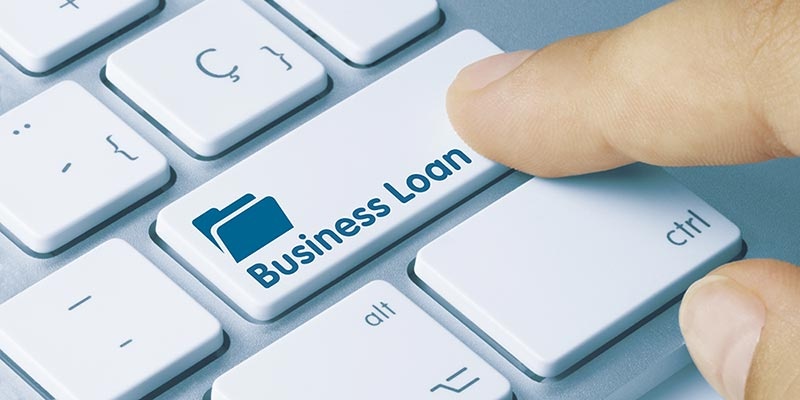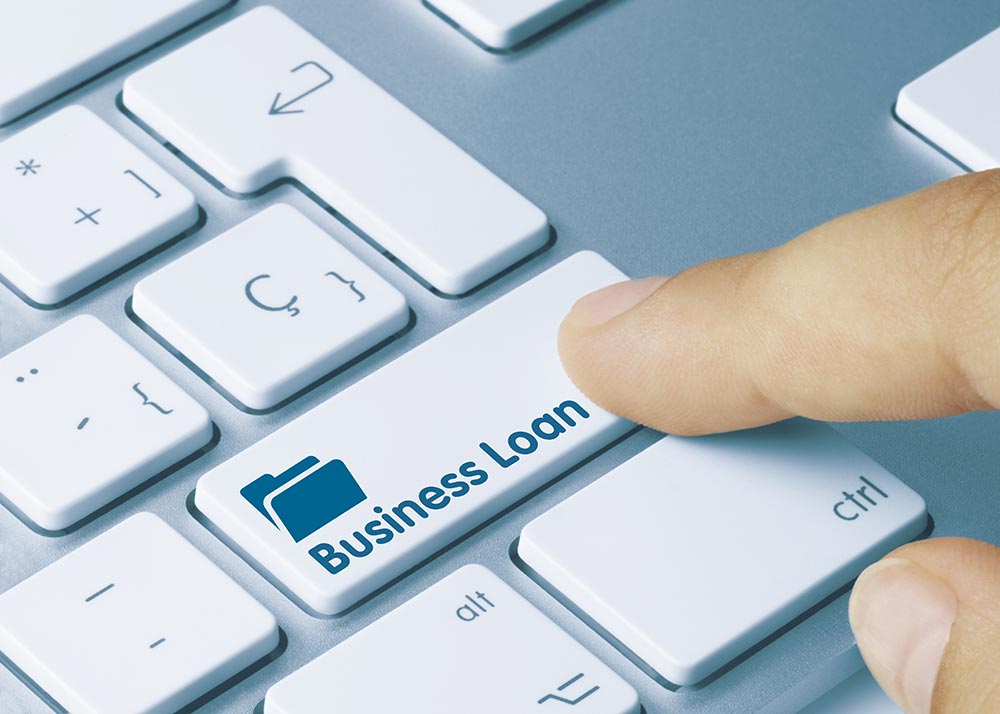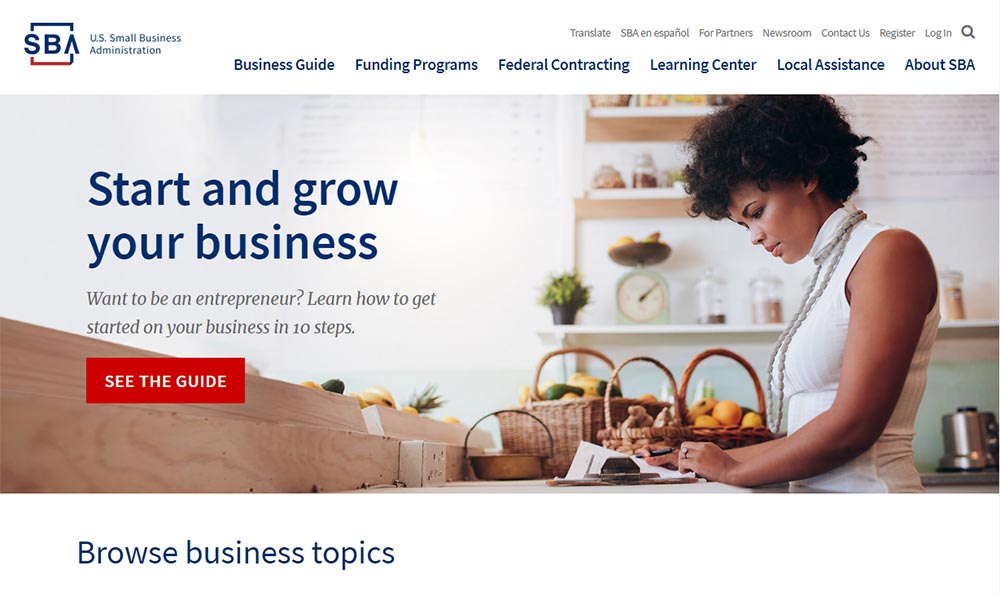The Startups Team

When it comes to small business loans, you have two options: private and government loans. While private lenders may be reluctant to take a risk on a new business or startup, government business loans were created specifically to boost small business in the United States.
As a result, you might find that it’s easier to secure a small business loan from the government than it is to secure one from a private lender.

Most government business loans are managed through the Small Business Association (SBA), which partners with lending institutions that actually distribute the money.
Because the loan is backed by the government — meaning if you default, the government pays of the balance — banks and credit unions are more likely to take a risk by issuing this type of loan than other types of loans.
SBA loans
An SBA small business loan is a loan that is backed by the Small Business Administration (SBA). Founded in 1953, the SBA is a federal government program that provides support to small business owners in the form of mentorship, workshops, counseling, and small business loans.

While the loans are backed by the SBA, they don’t come directly from the SBA. You’ll have to find a local lender who provides SBA loans in order to access to the funding.
What loans does the SBA offer?
There are three main types of SBA small business loans:
- 7(a) Loan Program
- 504 Loan Program
- 7(m) Microloan Program.
You can learn more about each type of SBA loan in our comprehensive SBA Small Business Startup Loans guide.
Who qualifies?
Each type of SBA small business loan has slightly different requirements, but generally you have to qualify as a small business according to the SBA size requirements, be a for-profit business, operate within the United States, have good personal and business credit, and not have other financing options (like your own wealth).
Loan amounts
SBA loans have an upper limit of $5 million. Therefore, they’re a better option for small businesses and startups who need smaller amounts of capital, versus those who might need many millions of dollars.
Time to funds
The process for applying for a SBA loan can take up to six weeks, with some taking only a couple weeks. If you qualify for a SBA loan, you can expect your funds as soon as one week after qualifying.
Interest rates
As of May 2018, maximum interest rates on SBA loans range from 7% to 9.50%.
Pros of SBA loans
- The loan is backed by the federal government. That means banks are more likely to loan to riskier companies — like startups — than they might otherwise.
- The equity requirement is relatively low compared to other loans.
- SBA loans have a floating interest rate that’s tied to the Prime Rate. The maximum interest rate for these loans is Prime Rate plus 2.25 percent for loans maturing in 10 years or less, and Prime Rate plus 2.75 percent for loans maturing in 25 years.
- People and companies who don’t have access to other forms of capital might find it easier to qualify for a microloan than for a larger or more traditional loan type.
Cons of SBA loans
- SBA small business loans are relatively small. They have an upper limit of $5 million.
- These loans may require more paperwork than a traditional loan.
- Startups or founders with poor credit are unlike to qualify.
What documents do you need to apply for a SBA loan?
Regardless of the type of the SBA small business loan you decide is the best fit for your startup, you’re going to need to present the following documents and information to your lending institution. It’s a good idea to get all of this together before you approach the bank, so that you’re ready to go (and you’re sure you qualify) before you start the long process of applying and qualifying for a SBA small business loan.
You’ll need:
- A personal background document.
- Your professional resume.
- A business plan.
- A description of how you plan to use the loan.
- How long you’ve been in the business.
- The size of your startup.
- Your personal credit report.
- A business credit report.
- Personal and business tax returns.
- Other financial documents.
For more information on each type of documentation, check out our SBA Small Business Startup Loans: A Comprehensive guide.
How to apply
If you’re interested in applying for a SBA loan, you can check out the SBA website to find a financial institution in your area that provides SBA loans.
Additionally, here’s our guide for applying for small business loans to maximize your chances of getting approved.
Additional options for veterans and women business owners
The federal government as well as the private sector have a specific subset of loan options available specifically for veterans as well as small business loans for women.
Other funding options
And, of course, small business government loans aren’t the only option out there for financing for startups. Don’t miss our guides to the full range of startup funding options, below.
- Venture Capital & Series Seed Funding: A, B, C, D, E
- Crowdfunding
- Small Business Loans
- Small Business Grants
- Private Investors
- Angel Investors
- Stay tuned for future guides!
Find this article helpful?
This is just a small sample! Register to unlock our in-depth courses, hundreds of video courses, and a library of playbooks and articles to grow your startup fast. Let us Let us show you!
Submission confirms agreement to our Terms of Service and Privacy Policy.
Already a member? Login
No comments yet.
Start a Membership to join the discussion.
Already a member? Login